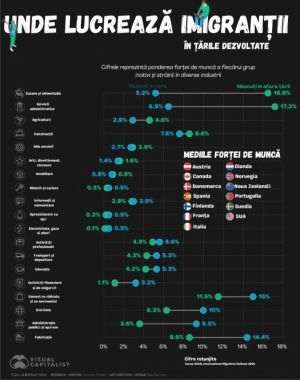If we look at the outcome of the local elections without any political or theoretical prejudice, but with due attention paid to the general elections due this fall, a few interesting conclusions may come to light. First of all, it turns out that Romanians remain interested in politics. More people exercised their right to vote in the two rounds of elections held recently than in the year 2000 and, surprisingly, the turnout exceeded 50 percent in the recent elections, which proves a real interest in determining those who are going to run local communities for the next four years. The second important conclusion is that neither of the two major political players - PSD and The DA Alliance - managed to achieve their electoral objective. PSD had planned to turn the success of its administration - EU accession progress and economic growth - into a crushing electoral victory that would have delivered it from its current status of a minority party onto the throne of the dominant party for the following four years. This objective has remained unaccomplished, although PSD gathered significantly more votes than it had in 2000. Its general performance, however, is contradictory. In Bucharest, PSD lost the ground gained in 2000 as it scored by ten percent less votes for and seats in The Bucharest City Council than four years before, and won only one sectorial mayoralty, compared to the six won in 2000. In other parts of the country, PSD lost traditional strongholds, such as the mayoralties of Bacau and Braila. PSD also lost mayoralties in counties it had traditionally controlled, such as Suceava or Botosani. But it achieved successes, too: for the first time ever, PSD won the mayoralties of Iasi and Constanta. The party retained control over several important towns and cities such as Craiova, Galati, Ploiesti and Pitesti. It is true that Ioan Rus lost the race for Cluj to Emil Boc, but the number of votes PSD gathered in Cluj Napoca is an all-time record. PSD also accomplished record-high scores in other Transylvanian counties, too - Salaj, Satu Mare, Bistrita Nasaud and even Timis, where it is still unclear whether PNTCD has retained the last remnant of its long gone power or the mayor of Timisoara was reelected just because his work is appreciated locally. PSD obtained a mixture of successes and failures from its combined political offensive focused on two targets: urban communities and Transylvania. Noteworthy is that the successes were achieved by new "soldiers' recently thrown into the battlefield (Craiova, Iasi, Constanta, Buzau) while the failures were suffered by "old faces' (Bacau, Braila, Arad) etc. However, not all of the "old faces' lost their seat. Freshly out of the political forge, The DA Alliance did not accomplish its objective either, despite their rather pretentious choice of words: "we are going to root PSD out of power." The two member parties - PNL and PD - put together obtained just about as many votes as PSD (some three million ). The Alliance, too, achieve a number of noteworthy victories: Cluj Napoca, several mayoralties snatched from PSD (such as Braila or Piatra Neamt) and a good score in Transylvanian counties. However, things are not too bright in the major cities, as the Alliance only controls the mayoralties and city counties in Bucharest, Cluj, Brasov and Braila. Three other cities - Sibiu, Timisoara and Bacau - were won by outsiders. Not even in Bucharest was the Alliance's victory complete: they did get The Bucharest City Hall for Traian Basescu and an absolute majority in The City Council, but they only managed to conquer four out of six sectorial mayoralties.
The other parliamentary parties - UDMR, PRM and PUR - obtained similar mixtures of successes and failures. UDMR only won Oradea, and that in the second round, too. PRM's score in the elections for county aldermen was better now than in 2000, but this party only got a surprisingly small number of mayoral seats, which proves that it has serious problems in finding credible candidates. As for PUR, despite the landmark victory in Bacau, the party has only proven that it is capable of rallying local winners. All in all, there is no clear winner of the local elections. Less than half a year before the general elections due this fall, the recently concluded electoral test tells us nothing certain but the fact that the general elections remain open to any outcome. The campaign for the general elections will probably start immediately. After the commotion sparked by the announcement of the scores dissipates, the parties will make their cold calculations and probably think long and hard about their weaknesses. PSD has to learn the lesson about better communication with the constituents - especially urban constituents - and, more importantly, the lesson about choosing their front line members more carefully. Apparently a paradox, PSD now has two more political personalities forged and strengthened in the heat of elections, despite their loss of the direct confrontation with their opponents: Mircea Geoana and Ioan Rus, whom PSD may find better use for in the general elections. The DA Alliance will have to come up with a positive campaign concept, as a negative campaign will not do the trick again. They also have to find some solution to their critical lack of convincing political personalities. Especially considering that two of the few ones they have - Traian Basescu and Emil Boc - are now engaged in local politics.























































